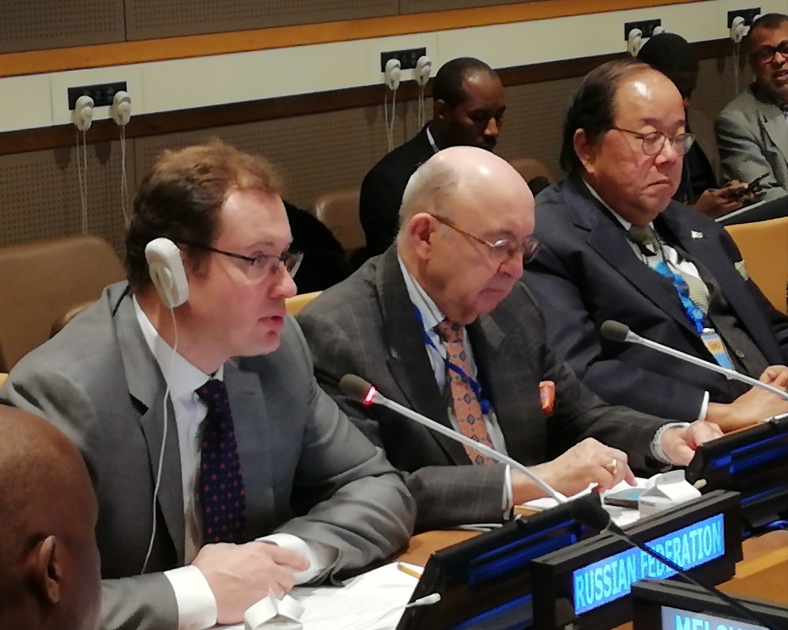Statement by Deputy Permanent Representative Dmitry Chumakov at the World Soil Day Event
Dear colleagues,
Ladies and gentlemen,
It is my honor and pleasure to welcome you on behalf of the Russian Federation at the celebration of the World Soil Day.
Soil health is a necessary factor for the production of sufficient volumes of ecologically sound agricultural products, that are conducive to improved health and nutrition, increased life expectancy and economic activity of the population. Today, land and soil degradation is one of the most important socio-economic problems, which also has important environmental consequences. That is why the topic of conservation, restoration and improvement of soil quality became an integral part of the 2030 Agenda for Sustainable Development.
Soil is the world’s largest terrestrial pool of carbon and approximately 95% of global food is produced in soil. However, scientific assessments show that about 33% of global soils are moderately or highly degraded. This situation directly affects 1.5 billion people in 110 countries. On a global scale an annual loss of 75 billion tons of soil from arable land costs about USD 400 billion each year in lost agricultural production. If this challenge is not tackled, two-thirds of the world's arable land will soon be unsuitable for agricultural production. This loss significantly reduces also soil’s ability to store carbon, nutrients and water.
This year, the World Soil Day is dedicated to a particularly urgent problem – the fight against soil erosion. Water and wind erosion causes significant damage to the productive potential of land. Globally, annual cereal production losses due to erosion have been estimated at 7.6 million tonnes. According to some expert estimates, the annual economic damage from soil erosion in Russia, including crop shortages on arable land, may exceed USD 300 million.
We appreciate the active role of the UN system, including FAO and UNCCD Secretariat, in addressing the issue of conservation and rational use of soils. We consistently support the work of the FAO Global Soil Partnership and commend the pace of the development of this mechanism. This applies also to the activities of the Eurasian Sub-regional Soil Partnership located in Moscow.
Russia has gained considerable experience in the field of conservation and sustainable management of land. Based on modern research, our country implements the State Programme for the Development of Agriculture until 2020, which provides for the restoration and preservation of soil fertility.
Sustainable soil management is also among our priorities in terms of sectoral international cooperation. In 2015, the Russian Government decided to allocate USD 1 million to FAO in order to support the work of the Global Soil Partnership. Under this project, the Voluntary Guidelines for Sustainable Soil Management were developed and adopted, which became one of the key tangible results of the International Year of Soils 2015.
For 4 years, our country has been sponsoring the World Soil Prize named after the prominent Russian soil scientist Konstantin Glinka. This initiative helps to strengthen interaction between the scientific community, international agencies and governments, encourages the adoption of evidence-based decisions on sectoral policy. Last year, the Russian Government allocated additional USD 2 million for the second phase of the FAO project to promote sustainable soil management.
It is important that not only governments are concerned with the problem of soil condition. The business community becomes more active and more responsible in addressing this issue. Thus, the International Code of Conduct for the Sustainable Use and Management of Fertilizers was developed with the financial support of the Russian company “PhosAgro” and approved at a recent session of the FAO Conference. The practical application of this document is intended to contribute to the gradual reduction of anthropogenic impact on soils caused by their irrational use.
In conclusion, let me express our hope that the determined joint efforts of all interested stakeholders, including governments, the scientific and business communities, will allow us to formulate and implement comprehensive strategies for sustainable agriculture development and the preservation of soil resources.
Thank you very much for your attention and happy World Soil Day!
